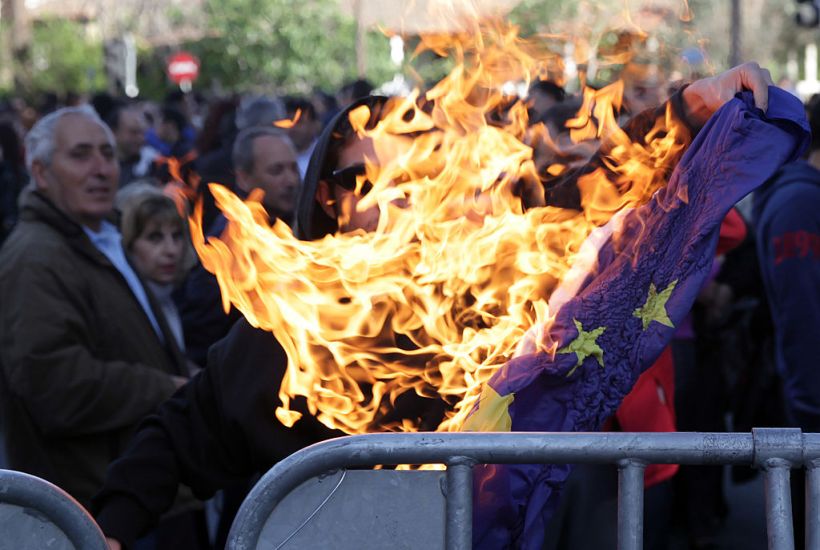Germany’s national parliament has made the public burning of the European Union flag and flags of foreign countries punishable by up to three years in jail, classing it as a hate crime. In a vote last Thursday, the German parliament made the act of defiling foreign flags equal to the crime of defiling the German flag. The new law also applies to acts of defilement other than burning, such as publicly ripping a flag up.
The initiative for this legislative change dates back to 2017 when protesters in Berlin burned the Israeli flag to emphasise their outrage about the United States’ support of Israel, causing indignation in parts of German federal politics. In particular, Germany’s Social Democrats (SPD) complained about the incident and began lobbying for legislative change. Justice Minister Christine Lambrecht, a member of the SPD, said ‘burning flags publicly has nothing to do with peaceful protests’. She is convinced that such actions stoke up ‘hatred, anger, and aggression’.
The defilement of foreign flags was already criminalised in Germany if the flags were placed at an official event, e.g. when a head of state was visiting. But every German was allowed to buy, carry, and destroy foreign flags at public rallies and for various forms of protest.
‘This is about the burning of foreign flags for symbolic purposes,’ argued Christian Rath, legal correspondent for the left-leaning German newspaper taz. ‘The flag is used as a symbol for the foreign country and its politics. It might be aggressive symbolism, but the portrayal of anger and outrage are legitimate reasons for demonstrations, especially when anger and outrage are justified.’
‘Apart from Denmark, there is not another democratic state with such a far-reaching law,’ stated Niema Movassat, a politician representing The Left. ‘Germany would take an exceptional position with its prohibition of the burning of foreign flags,’ he told Legal Tribune Online before the ban.
The United States, for example, does not have any laws that make the burning of flags a punishable offence, as the Supreme Court has decided multiple times that such laws would interfere with freedom of expression and so violate the constitution. In Britain, Belgium, the Netherlands, and Canada, it is not illegal to destroy foreign flags. Defiling the Union Flag isn’t even a crime in Britain.
You could reason that the flag of Israel should be under special protection in Germany during world war two remembrance days. But the defilement of the Chinese flag in a protest against the country’s treatment of Uighur Muslims or the flag of Myanmar to show outrage about the Rohingya genocide seems like a legitimate form of protest, even if it is not the most sophisticated one.
Germany’s federal government also intends to adjust the country’s laws against stirring up hatred against individuals online. But the defilement of flags is not about the protection of individuals. In its motion, the government argued that the ‘reputation of foreign states’ and the ‘good relationships’ between Germany and foreign states have to be protected. This law seems more like a deliberate effort to restrict public criticism of foreign governments. And in a time when freedom of expression is under pressure in many parts of the world, citizens of democratic states should be wary of any attempts to narrow forms of protest.
Got something to add? Join the discussion and comment below.
Get 10 issues for just $10
Subscribe to The Spectator Australia today for the next 10 magazine issues, plus full online access, for just $10.




















Comments
Don't miss out
Join the conversation with other Spectator Australia readers. Subscribe to leave a comment.
SUBSCRIBEAlready a subscriber? Log in